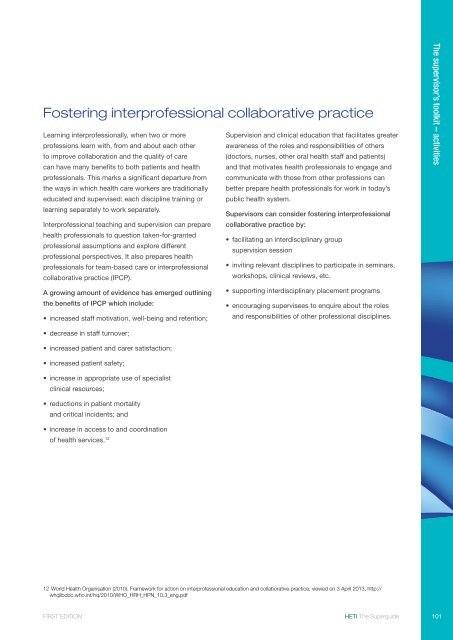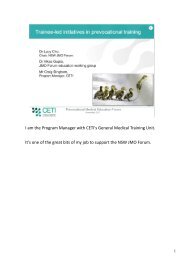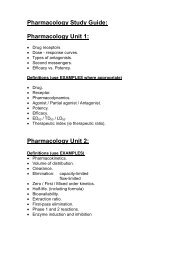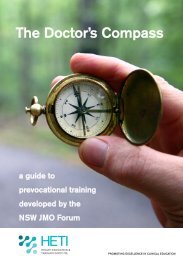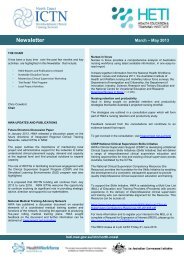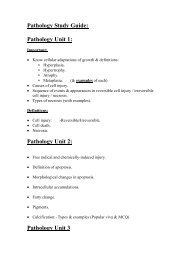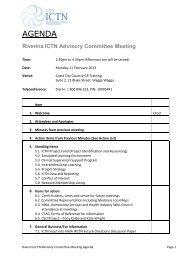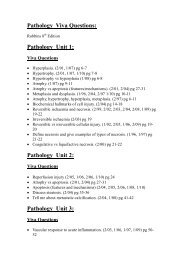Open - HETI - NSW Government
Open - HETI - NSW Government
Open - HETI - NSW Government
- No tags were found...
Create successful ePaper yourself
Turn your PDF publications into a flip-book with our unique Google optimized e-Paper software.
Fostering interprofessional collaborative practiceLearning interprofessionally, when two or moreSupervision and clinical education that facilitates greaterprofessions learn with, from and about each other awareness of the roles and responsibilities of othersto improve collaboration and the quality of care(doctors, nurses, other oral health staff and patients)can have many benefits to both patients and health and that motivates health professionals to engage andprofessionals. This marks a significant departure from communicate with those from other professions canthe ways in which health care workers are traditionally better prepare health professionals for work in today’seducated and supervised: each discipline training or public health system.learning separately to work separately.Supervisors can consider fostering interprofessionalInterprofessional teaching and supervision can prepare collaborative practice by:health professionals to question taken-for-granted• facilitating an interdisciplinary groupprofessional assumptions and explore differentsupervision sessionprofessional perspectives. It also prepares healthprofessionals for team-based care or interprofessional • inviting relevant disciplines to participate in seminars,collaborative practice (IPCP).workshops, clinical reviews, etc.A growing amount of evidence has emerged outlining • supporting interdisciplinary placement programsthe benefits of IPCP which include:• encouraging supervisees to enquire about the roles• increased staff motivation, well-being and retention; and responsibilities of other professional disciplines.The supervisor’s toolkit – activities• decrease in staff turnover;• increased patient and carer satisfaction;• increased patient safety;• increase in appropriate use of specialistclinical resources;• reductions in patient mortalityand critical incidents; and• increase in access to and coordinationof health services. 1212 World Health Organisation (2010). Framework for action on interprofessional education and collaborative practice, viewed on 3 April 2013, http://whqlibdoc.who.int/hq/2010/WHO_HRH_HPN_10.3_eng.pdfFIRST EDITION<strong>HETI</strong> The Superguide101


